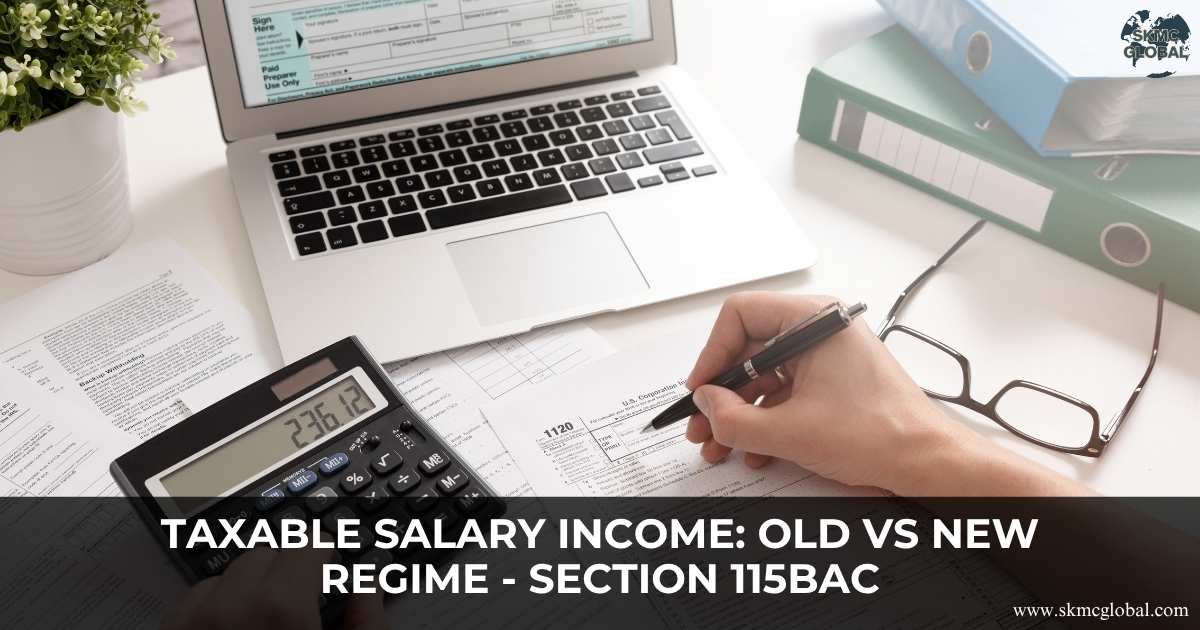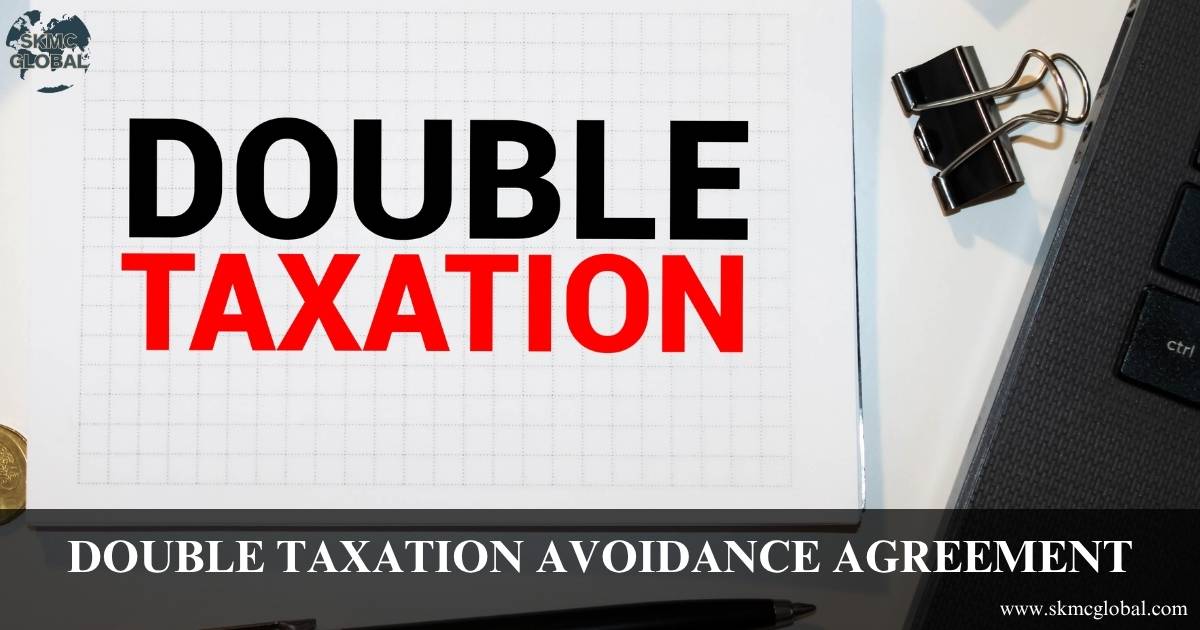
In the past, a lot of transactions required the acquisition of an Income Tax Clearance Certificate. For example, placing a bid for a public project, registering a piece of real estate, and reactivating shipping, import/export, and postal permits. Following liberalization, all of these have been abandoned. Now, taxpayers just need to provide their Permanent Account Number (PAN) in tenders and other relevant papers. The Income Tax Act of 1961, however, only mandates the acquisition of an Income-Tax Clearance Certificate—or a certificate akin to one—for a small number of transactions.
To answer all of your inquiries, we will explore the most important components of an Income Tax Clearance Certificate (ITCC) in this blog.
Meaning of Income Tax Clearance Certificate
The tax authorities certify through a Tax Clearance Certificate that the taxpayer has settled all of his outstanding tax obligations or is not obligated to pay any taxes.
Fundamentally, a Tax Clearance Certificate is a document that is issued by a state government agency, usually the Department of Revenue. It certifies that, as of a given date, an individual or business has complied with their tax obligations. A business's Clearance Certificate may cover a variety of taxes, including sales tax, use tax, franchise or corporate tax, unemployment tax, and others, depending on the laws and regulations of each state. After receiving such an undertaking and the relevant papers, the income tax officer will issue the ITCC in Form 30B if they are satisfied with the information presented. The validity of the ITCC will also be covered in the paper.
As the name implies, an income tax clearing certificate is a declaration from the Indian tax authorities attesting to the fact that you have paid off all of your outstanding taxes. Its issuance falls within the purview of a state government's revenue department. The certificate must be obtained by someone who satisfies the following three requirements:
- The individual in question does not reside in India.
- He or she is traveling to India for a professional or business trip.
- Their revenue comes from an Indian source.
In general, an ITCC is required for anyone who is not an Indian citizen but has a source of income in India—perhaps from a business or job there.
It should be mentioned that an ITCC is not required for an individual who resides in India. Rather, they must provide their PAN (Permanent Account Number) along with the cause for their international journey. However, they can be asked to obtain ITCC if relevant authorities believe they are involved in any financial wrongdoing.
Section 230 of the Central Board of Direct Taxes (CBDT) clarifies that obtaining a tax clearance certificate for an individual residing in India is not a prerequisite for departing the country. The effective date of this amendment is October 1, 2024.
Who is Exempt from Income Tax Clearance Certificate Requirements?
A resident Indian does not need to get an Income Tax Clearance Certificate, but he must present his PAN when traveling overseas for any purpose other than to permanently depart India.
This data must be submitted using Form 30C. Furthermore, an Indian non-resident who visited the country for any reason other than work, business, or profession is not required to obtain an Income Tax Clearance Certificate prior to departing the country.
Who Will Provide the Certificate of Tax Clearance?
The documents are checked once the concerned party or their employer files the undertaking in the appropriate form. The revenue department of the relevant state government issues the income tax clearance certificate in the concerned person's name when the verification and approval process is successful.
How Does a Tax Clearance Certificate Get Used?
Any non-resident who has earned income while visiting India, regardless of the source, is required by law to pay taxes on that income under the Income Tax Act. A declaration attesting to the fact that the person departing India has paid all of their taxes for the time they were in the nation is known as an income tax clearance certificate. It further stipulates that their employer, from whom they received their salary, will pay any outstanding taxes that may occur after they depart.
Thus, the certificate absolves the expat of any future legal obligations. It enables them to depart the nation without concern.
In India, how can one obtain an online Income Tax Clearance Certificate?
It is still not possible to apply for ITCC online. A non-resident who has received money from any source in India and wishes to obtain the certificate may do so by completing Form 30A, which requests an undertaking from their employer. According to the employer's pledge, if the expat has already left the country and there is a tax payment that needs to be made, the employer will pay it on their behalf.
How Can I Download A Certificate of Tax Clearance?
This service isn't accessible online, as was previously stated. The expatriate must submit Form 30A together with all necessary documentation in order to apply for ITCC.
The income tax officer will issue the tax clearance certificate in Form 30B after receiving it if they are satisfied. Recall that the certificate has a validity period, and the date is printed on the certificate.
What is the Income Tax Form 30C?
If an Indian resident is traveling overseas for any purpose other than to permanently depart the country, they generally do not need to obtain an ITCC. In this case, a legitimate PAN card is sufficient. They must still submit form 30C, nevertheless, indicating that they are leaving the nation and providing details about their intended destination and expected length of stay.
Nonetheless, there are circumstances where a resident may be requested to provide ITCC.
- The individual has any kind of financial or tax irregularity participation, and tax officials need to see them in order to conduct an inquiry.
- They owe more than Rs. 10 lakhs in overdue taxes, and no authority has halted them.
Even under these two circumstances, the Income Tax Department's Chief Commissioner must issue an order before an ITCC from an Indian domiciled citizen can be received.
Is Form 30C Submission Required?
It is required of a domiciled resident to complete Form 30C and provide PAN card details if they are traveling overseas without intending to leave the nation permanently.
How to Download Tax Clearance Certificates ?
To download a Tax Clearance Certificate, you typically need to follow these steps:
Step 1: Log in to the Tax Portal first. Use the internet portal provided by the tax department to file your taxes. This could be the website of a local tax authority or the Income Tax Department portal.
Step 2: Proceed to the Section with Certificates. Seek out the area pertaining to documents or certifications. Generally, certifications or compliance documents fall under the category of tax clearance certificates.
Step 3: Find the link to obtain or request a Tax Clearance Certificate. This could be completing an application or deciding which particular tax year or term you require the certificate for.
Step 4: A One-Time Password (OTP) given to your registered email address or mobile number may be required by certain portals in order for you to authenticate yourself.
Step 5: After verification, the Tax Clearance Certificate in PDF format ought to be available for download.
Step 6: Print a hard copy of the certificate for your records and save a copy on your device, if necessary.
What Takes Place If Your Income Tax Clearance Certificate Is Not Filed?
A non-resident who is departing the nation must pay off any outstanding taxes before they leave India. There could be two consequences if the individual in question fails to turn in their ITCC.
- Before taking off, the ship or plane carrying them out of the nation must verify that all the required paperwork is on board. If they fail, they are personally responsible for the non-resident's unpaid taxes.
- It is the individual's obligation to pay all outstanding fees if they are departing the nation using a privately owned vehicle. Prior to their departure, they must also obtain ITCC. If you don't, the Tax Authority of India has the right to pursue all available options to get the unpaid tax.
Uses of Tax Clearance Certificate -
A Tax Clearance Certificate is used for a number of significant objectives, chief among them being the demonstration of tax conformity and the facilitation of specific financial operations.
- Business Transactions: A Tax Clearance Certificate may be necessary for a number of business transactions, particularly those involving major firms or government bodies. It gives the concerned parties the reassurance that the organization or person is current with their tax payments and filings.
- Loan Applications: When a person or business applies for a loan, banks and other financial institutions may ask for a Tax Clearance Certificate. This is evidence of sound financial management and tax compliance.
- Contract Tendering: A Tax Clearance Certificate is frequently necessary when submitting a bid for a government contract or a sizable private tender. It guarantees that the bidder is in good standing with tax authorities and does not owe any money on taxes.
- Property Transactions: To make sure there are no tax obligations connected to the property, a Tax Clearance Certificate may be required for property transactions, particularly for high-value transactions or transfers involving corporations.
- Court Cases: A Tax Clearance Certificate may be required in judicial proceedings to verify the status of tax compliance, especially when it comes to financial disputes or settlements.
Application of ITCC made by Indian and Not Indian Citizen
People who are not Indian Citizen -
Before departing India, a person having income from any source who is not an Indian resident but has traveled there for work, business, or other reasons needs to get a tax clearance certificate.
A certificate can be obtained by a non-resident Indian person from their employer or income source. However, if the employee is not an Indian resident, the employer or the person who gets the money must typically notify the tax authorities that they will pay the tax owed by the employee or the person from whom the revenue was received.
It should further state that upon receipt of the undertaking, the appropriate authority shall promptly provide a no-objection certificate in Form No. 30B.
People who are Indian citizen
Residents just need to provide their permanent account number, the cause for their trip, and an estimated duration of stay when going outside of India.
The majority of Indian citizens and residents are not required to have a tax clearance certificate. However, if the income tax authorities find that a person needs to get a tax clearance certificate in order to travel overseas for a number of reasons, they may issue such an order. This order for passing an order may only be acquired with the Chief Commissioner of Income-approval tax's assistance.
Conclusion
ITCC is a crucial document that releases a person from any tax obligations. For resident Indians, it is not required, but for non-residents, it must be obtained prior to departure. Only after paying their outstanding taxes and submitting the required paperwork will they be able to receive this certificate.
Our view
Documents issued by tax authorities attesting to the fact that a person or company has paid all taxes owed up until a specific date are called Income Tax Clearance Certificates, or ITCCs. For many formal purposes, including applying for loans, visas, or government contracts, this certificate is frequently needed.
One essential instrument for guaranteeing tax compliance is the Income Tax Clearance Certificate. It gives reassurance that a person or corporation has fulfilled its tax duties to a variety of stakeholders, such as financial institutions, government authorities, and business partners. By discouraging tax evasion and guaranteeing that taxes are correctly collected and sent to the government, the necessity for this certificate contributes to the advancement of accountability and transparency.
Basically, an ITCC is a reflection of sound financial and legal status, which is why it's a crucial document for a lot of personal and business activities. Potential legal and financial issues can be avoided by keeping current tax documents and, when required, obtaining an ITCC.
FREQUENTLY ASKED QUESTIONS
A document issued by the tax authorities attesting to the fact that a person or entity has paid all taxes owed and has no unpaid tax obligations is called an Income Tax Clearance Certificate. When making large financial transactions, such selling real estate, applying for loans, or taking a long-term vacation, it is frequently necessary.
An ITCC might be necessary in a number of circumstances, such as:
- Travel: For Indian nationals going overseas on extended business trips or for other purposes, particularly if their company or the country they are visiting mandates it.
- Property Transactions: When real estate is being transferred or sold.
- Public Contracts: When submitting an application for a public contract or tender.
- Foreign Remittances: When transferring substantial quantities of cash outside the nation.
Usually, to apply for an ITCC, you must:
- Fill out the appropriate form and submit it to the Income Tax Department (For example, in India, use Form 34A).
- Deliver required paperwork, including income verification, tax returns, and payment receipts.
- Fulfill any further conditions that the tax authority may specify.
The necessary documentation could consist of:
- copies of tax returns that have been filed.
- evidence of taxes paid (challans, etc.).
- a current passport (if applying for a trip).
- supporting documentation for any requested exemptions or deductions.
- a letter from your company, if relevant.
Depending on the particulars and the effectiveness of the local tax office, the processing period for an ITCC may differ. It may take many days or several weeks.
Depending on the jurisdiction, there can be a small processing cost for the ITCC application.
You can apply online for an ITCC using the official income tax department portal in several countries, including India. Typically, this process is completing an online form and uploading the required files.
If the tax authorities reject your ITCC application, they will often provide you a reason. Frequently cited causes include missing paperwork or unpaid taxes. After addressing the concerns, you can either appeal the ruling or reapply.
An ITCC's validity can vary, but it usually lasts for a set amount of time—for example, a year after it is issued. A fresh certificate could be needed for additional transactions or uses after this time.
When an ITCC is needed, failing to get one can have negative legal and financial repercussions, including fines, transaction delays, and prohibitions on specific activities like leaving the country.
Recent Posts
-
 GSTR-9C: The Reconciliation Statement for Larger B...
Nov 25,2025
GSTR-9C: The Reconciliation Statement for Larger B...
Nov 25,2025
-
 Taxable Salary Income: Old vs New Regime - Section...
Nov 13,2025
Taxable Salary Income: Old vs New Regime - Section...
Nov 13,2025
-
 Understanding Foreign Dividend Income Taxation...
Oct 21,2025
Understanding Foreign Dividend Income Taxation...
Oct 21,2025
-
 A Guide on Income Tax Scrutiny Assessments...
Oct 17,2025
A Guide on Income Tax Scrutiny Assessments...
Oct 17,2025
-
 Claiming Tax Credits under Double Taxation Avoidan...
Aug 28,2025
Claiming Tax Credits under Double Taxation Avoidan...
Aug 28,2025
-
 Relevance of Double Taxation Avoidance Agreement f...
Jul 19,2025
Relevance of Double Taxation Avoidance Agreement f...
Jul 19,2025
-
 Understanding APAs Under Indian Income Tax Law: Pr...
Jun 23,2025
Understanding APAs Under Indian Income Tax Law: Pr...
Jun 23,2025
-
 A guide to permanent establishment risks for globa...
May 16,2025
A guide to permanent establishment risks for globa...
May 16,2025
-
 E- Commerce-Challenging Transactions Without Borde...
Mar 20,2025
E- Commerce-Challenging Transactions Without Borde...
Mar 20,2025
-
 Form 10F...
Mar 04,2025
Form 10F...
Mar 04,2025
-
 THE NEW INCOME TAX BILL, 2025...
Feb 24,2025
THE NEW INCOME TAX BILL, 2025...
Feb 24,2025
-
 TDS Amendments...
Feb 14,2025
TDS Amendments...
Feb 14,2025
-
 What is an Income Tax Clearance Certificate (ITCC)...
Oct 02,2024
What is an Income Tax Clearance Certificate (ITCC)...
Oct 02,2024
-
 Introduction to Cross-Border Taxation...
Apr 13,2022
Introduction to Cross-Border Taxation...
Apr 13,2022
-
 The Importance of Transfer Pricing for Multination...
Mar 16,2022
The Importance of Transfer Pricing for Multination...
Mar 16,2022
